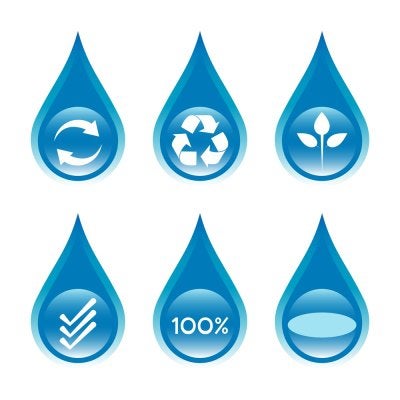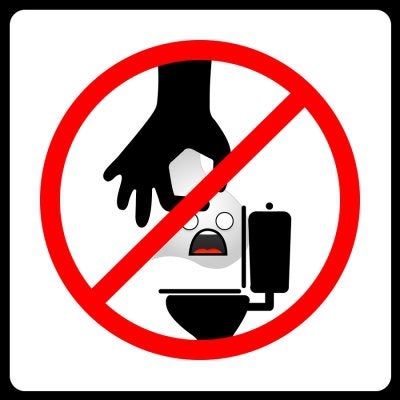-
Tips for Conserving Water at Home
Water is a limited natural resource that requires careful conservation. When you are working with a plumber serving Jacksonville to update your fixtures or repair your system, you may want to ask about how you reduce your water consumption at home. With careful kitchen or bathroom design and a quality tankless water heater, you can cut back on the amount of water that your family uses every day. A plumbing repair company can also provide you with the services that you need to stop hidden leaks and restore the efficiency of your system. Here is a look at some essential tips for conserving water in your home.

Install Efficient Appliances
One of the most effective ways to conserve water in your home is to install efficient appliances throughout your property. If you have been using the same dishwasher, washing machine, or hot water heater for more than a decade, your appliance could be wasting water with every use. The latest plumbing appliances are engineered to provide you with quality performance, while also cutting back on your water use.
Choose Low Flow Fixtures
Another factor to keep in mind when you are conserving water at home is that low-flow fixtures will dramatically reduce your overall water consumption. A conventional showerhead can use thousands of gallons of water every year. With a water-wise, low-flow fixture installation, you can rest assured that you are not using excess water when you bathe, shower, or wash dishes by hand.
Find and Repair Plumbing Leaks
Plumbing leaks can be major sources of water consumption in a household. Even a tiny, hidden pinhole leak in a pipe can waste thousands of gallons of water on an annual basis. With services from your plumber, you will be able to find and repair any plumbing leaks that are affecting the efficiency of your system. If you have more questions about how to save water at home, be sure to contact your local plumbing professionals.
-
Tips for Preventing a Home Plumbing Emergency
Frantically calling your plumber in Jacksonville for an emergency water heater repair is probably not how you would like to spend the down time you are left with after work, and the only way to avoid this is to practice preventative maintenance. This includes the proper use of your appliances and fixtures and appropriate care and attention whenever you perform a repair. Continue reading if you would like a few tips for preventing a home plumbing emergency.
 Use Your Appliances Properly
Use Your Appliances Properly
If you would like your household appliances and fixtures to continue to work properly and efficiently, it is important to treat them well. Refrain from hanging heavy shower caddies on your showerheads and faucets, and never attempt to force your faucet handles if the fixture leaks. Many homes and families run into problems regarding the use of their toilets and sinks; these drains are only designed to handle certain materials, so it is important to educate yourself about what should and should not go down the drain. Refrain from attempting to flush paper towels, diapers, and feminine products down the toilet; only waste and toilet paper should make their way down that drain. Never dump grease, oils, fats, or large food products down the kitchen sink or you will eventually experience a clog.Tighten Within Reason
Wanting to ensure that your plumbing components are safe and secure in their places is understandable, but some homeowners tend to be misguided in their efforts. While it is important for your joints to be sealed, you should avoid tightening them too much ; forcefully tightening joints and fittings may damage these components, which can quickly lead to more severe plumbing problems than you had in the first place.Test for Leaks
Those who are particularly handy or relatively well versed in the plumbing industry may tackle home plumbing projects on their own. Replacing a handle or diagnosing a problem on your own may be fine, but it is crucial that you remember to test for leaks. Check your valve components before walking away from the job to avoid returning to find leaks and water damage.
RECENT POSTS
categories
- Uncategorized
- Water Heater Installation
- Tankless Water Heater
- Plumbing Services
- Bathroom Remodeling
- Hot Water Heater
- Plumber in Jacksonville
- Water Heater Repair
- Eagerton Plumbing
- Eco-Friendly Plumbing Repair
- Water Damage
- Plumbing Leak
- Sewer Line Repair
- Infographic
- Clogged Drains
- Kitchen and Bathroom Remodel
- Bathroom Plumbing
- Residential Plumbing Services
- Garbage Disposal
- Toilet Repair
- Water Heater Replacement
- Water Conservation
- Emergency Plumbing
- Commercial Plumbing Services
- Kitchen Design Inspiration
- Kitchen Remodel
- low-flow toilets
- Leaky Faucet
- Conserve Water
- Drain Pipes
- Kitchen Sinks
- Vessel Sink
- Plumbing Problems
- Water Leak
- Commercial Remodeling Contractors
- Drain Cleaning Services
